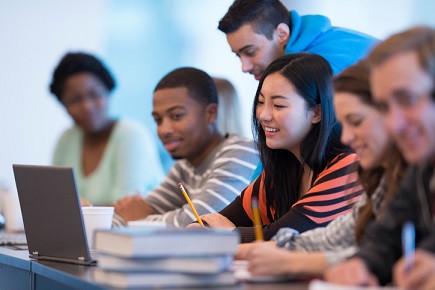
The majority of refugee children – 11 million globally – live in countries with overstretched education systems, many residing in camps unable to meet their basic needs.
However, despite these obstacles, some refugees succeed academically, completing secondary school and pursuing higher education.
Now, new research into these educational journeys shows that relationships, at times aided by technology, are a key difference-maker for refugee children, helping them to persist in the face of overwhelming challenges.
The study was published by the American Educational Research Journal, was led by Sarah Dryden-Peterson and co-authored with Negin Dahya and Harvard Graduate School of Education doctoral candidate Elizabeth Adelman.
It analyzed 21 in-depth interviews and 248 surveys with Somalis. Each of the people interviewed had completed secondary school in Dadaab. The survey respondents were all Somali adults who had completed secondary school; half had done so in a refugee camp.
More than 80% had pursued some postsecondary education, and by the time of the study, many had resettled to Canada, the United Kingdom, and the United States.
The respondents revealed that refugees are creating webs of local and global supports that enable their educational success – supports that are not unlike those that other marginalized and isolated children across the world require.
According to the surveys conducted, a little under half of the respondents received support virtually – through email, texting, or social media – but 75% of the survey respondents who'd lived in refugee camps said that support was from people in their same geographic location.
Career guidance was one of the highest ranked “virtual supports” for those who had lived in refugee camps, often given by geographically close friends and teachers.
As for academic support, 81% of those who had resided in refugee camps said that traditional academic support – guidance about course selection, tutoring, or writing help, for example – was very important to their educational success. The most common sources of that academic support were teachers, friends, and family.
When surveyed on emotional support, girls in refugee camps said they received more virtual emotional support from family and friends; boys in refugee camps were more likely to receive it from teachers.
The research indicates that as schools and governments look for ways to help refugee children achieve a higher level of education, it’s important to focus not just on the barriers they face, but also on what works.
“Strong support from family, friends, and teachers is critical – and when those networks are spread across the globe, social media and texting can help fill in the gaps,” the researchers said.
“The expansion of personal technology has enabled individuals to build…relationships virtually to find globally situated relationships that were unavailable locally.”
It is also important to facilitate peer networks and study groups for refugee children, the researchers added.
“Refugee students’ motivation for education is so often tied to a desire to contribute to peace-building and post-conflict reconstruction in their countries of origin,” they wrote.
“Connections to friends and family, near and far, can help refugee children see the ‘light at the end of the tunnel’ of their own educational journeys, keeping them motivated to learn and strive for peace.”


